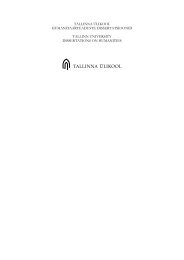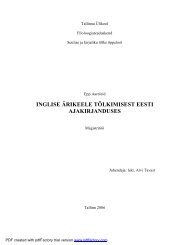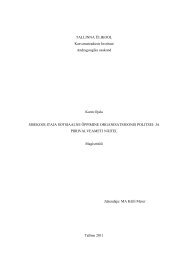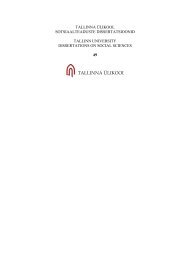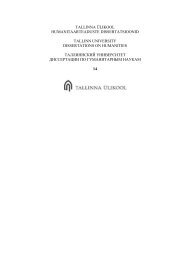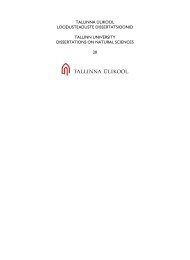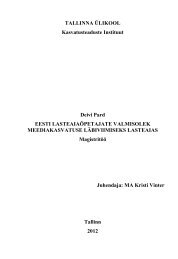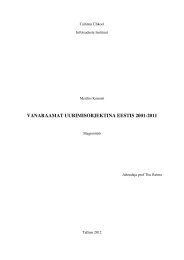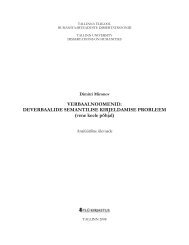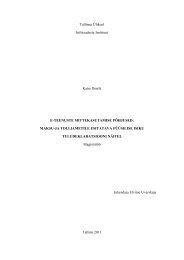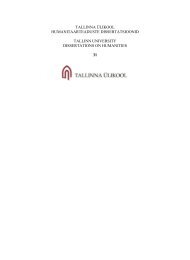Download (1157Kb) - E-Ait
Download (1157Kb) - E-Ait
Download (1157Kb) - E-Ait
Create successful ePaper yourself
Turn your PDF publications into a flip-book with our unique Google optimized e-Paper software.
Craig S. Fleisher and David L. Blenkhorn suggest that the process of making changes to the<br />
way information is shared in an organisation is usually difficult. Some significant barriers<br />
may stand in the way. For example, some organisational structures promote “Silos” where<br />
individual locations, divisions or functions are so focused on maximizing their own<br />
accomplishments and rewards, that they consciously or unconsciously hoard information<br />
thereby sub-optimise the performance of the entire organisation (Fleisher & Blenkhorn,<br />
2003, p.99).<br />
Hierarchical organisational structure hinders the free flow of information. This is one<br />
common structure in libraries. Steve Clarke and Dianne Willis suggest that without doubt,<br />
organisational hierarchy poses a problem, impacting upon the social context, with different<br />
levels making it harder to create an environment that facilitates the building of knowledge, its<br />
diffusion, coordination and control, with the distortion of ideas and knowledge resulting as a<br />
consequence of multilayer transmission. In additional, hierarchy may hinder crossfunctional<br />
and horizontal communication (Clarke & Willis, 2002).<br />
2.4.2.3. KS strategy.<br />
Many organisations lack knowledge sharing strategy. A reward system is not in place and as<br />
a matter of fact people are not encouraged to share their knowledge. According to Goldsmith,<br />
Morgan and Ogg people who live the values of the firm must be publicly acclaimed as<br />
heroes. Stories must be told about their value-driven behaviour so that others will want to<br />
emulate them. According to them, the compensation system must also identify those who<br />
share, and reward them differentially (Goldsmith, Morgan & Ogg, 2004).<br />
Nonaka and Takeuchi indicate that a combination of formal organisation structure and a nonhierachirchal,<br />
self-organising organisational structure would improve knowledge creation and<br />
sharing capabilities (Nonaka & Takeuchi, 1995). The research conducted by Powel reveals<br />
that, there is a persistent tension between those activities done informally and on an ad hoc<br />
basis and those efforts that are more structured and formalised. According to Powel,<br />
information can be conveyed routinely through informal means. While formal repositories<br />
and powerful task forces can be useful, they are too often not a forum in which outside input<br />
is allowed. Building routines for regular contact without formalisation allows for the<br />
22



